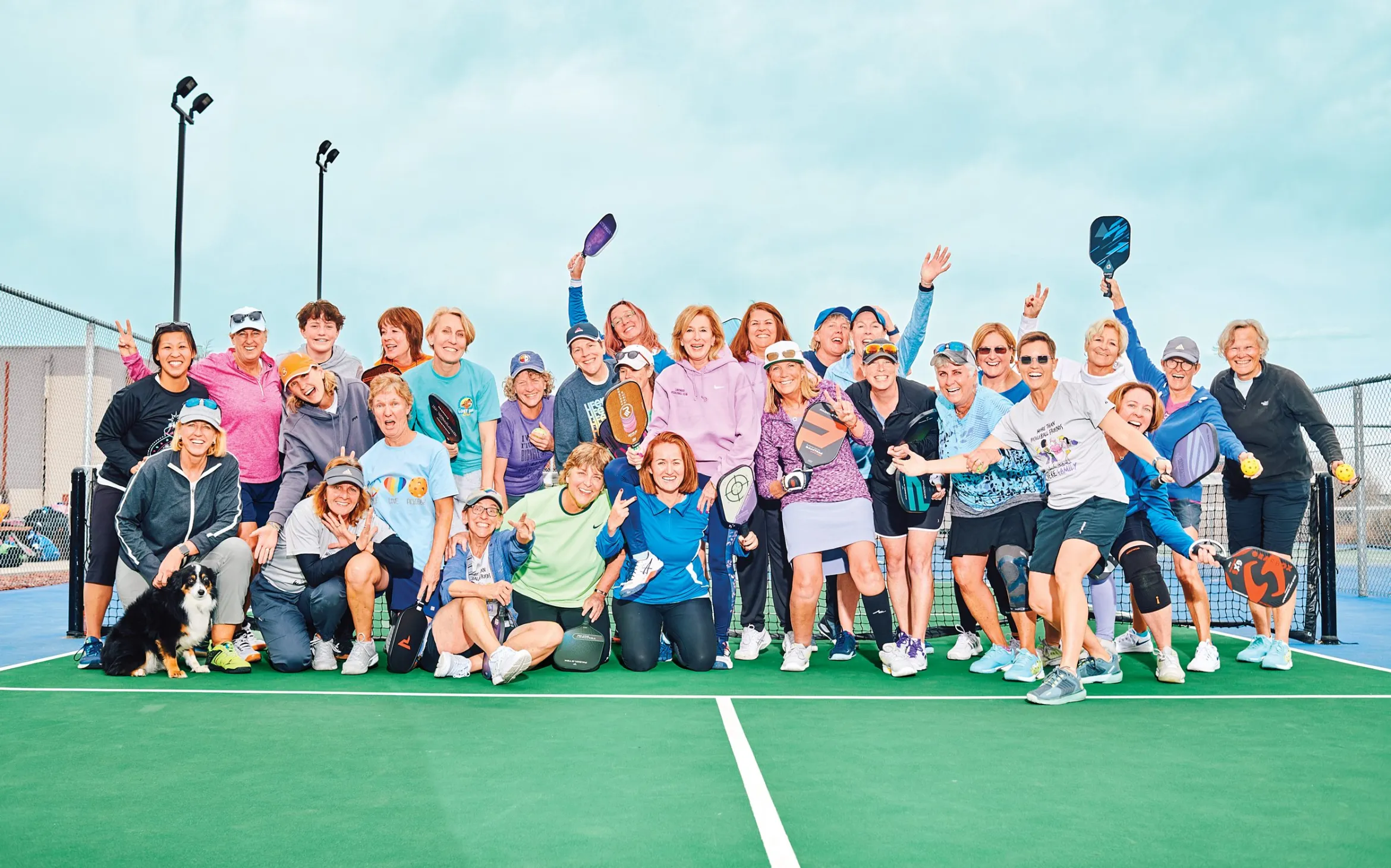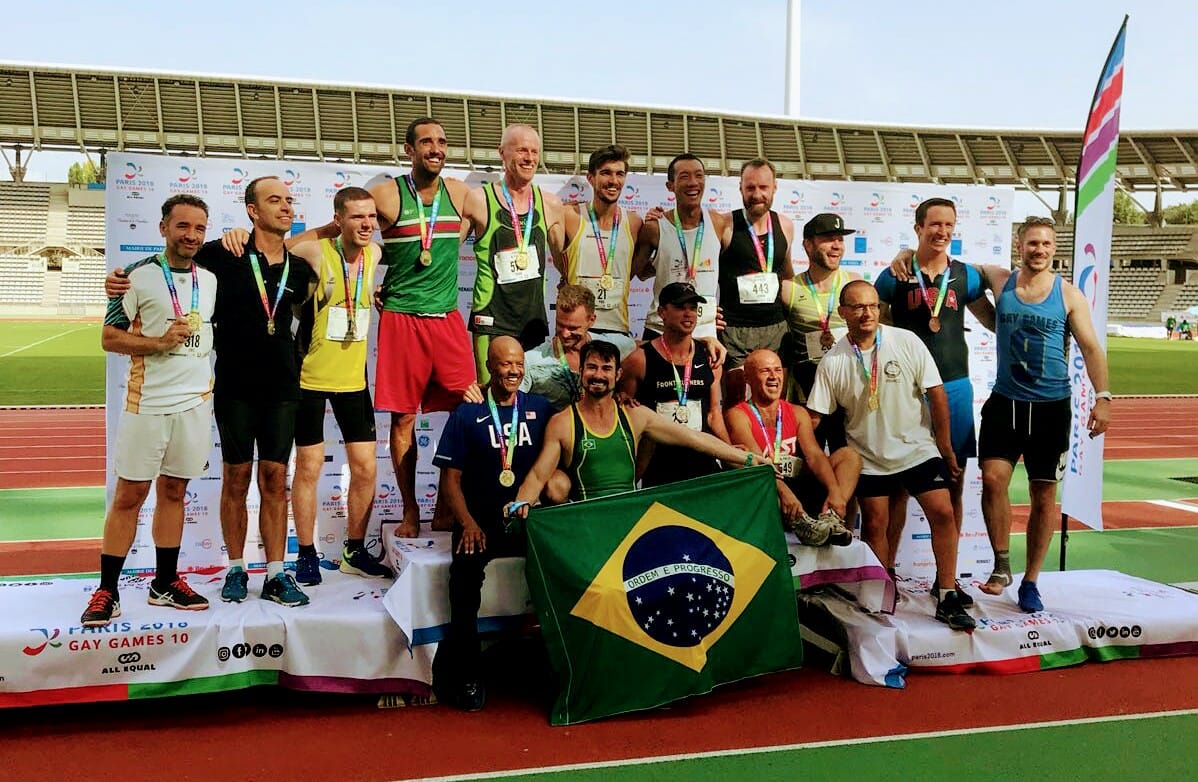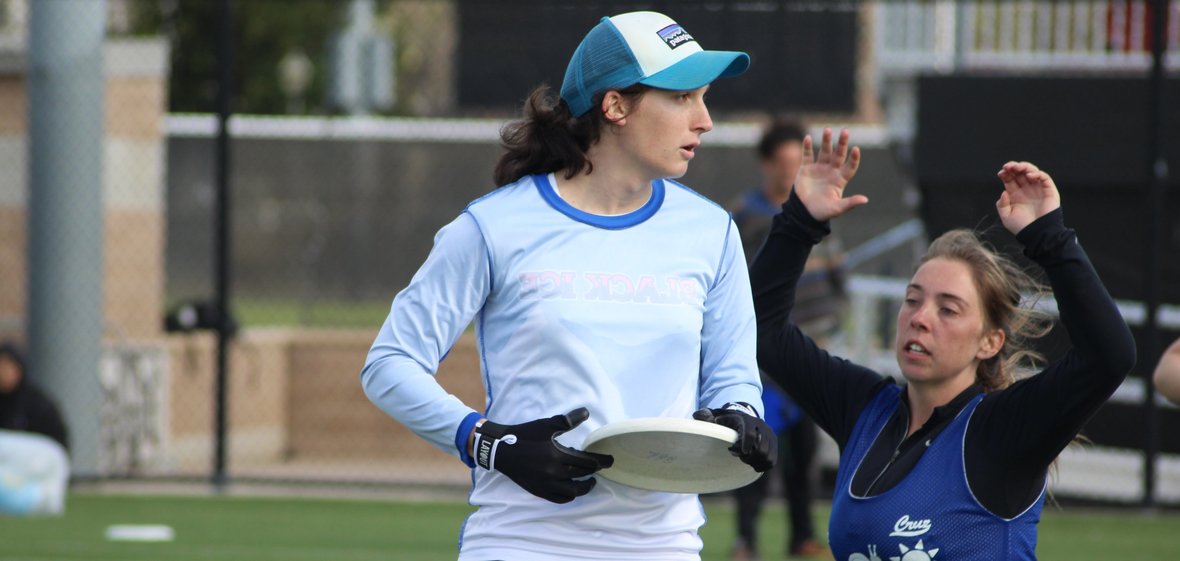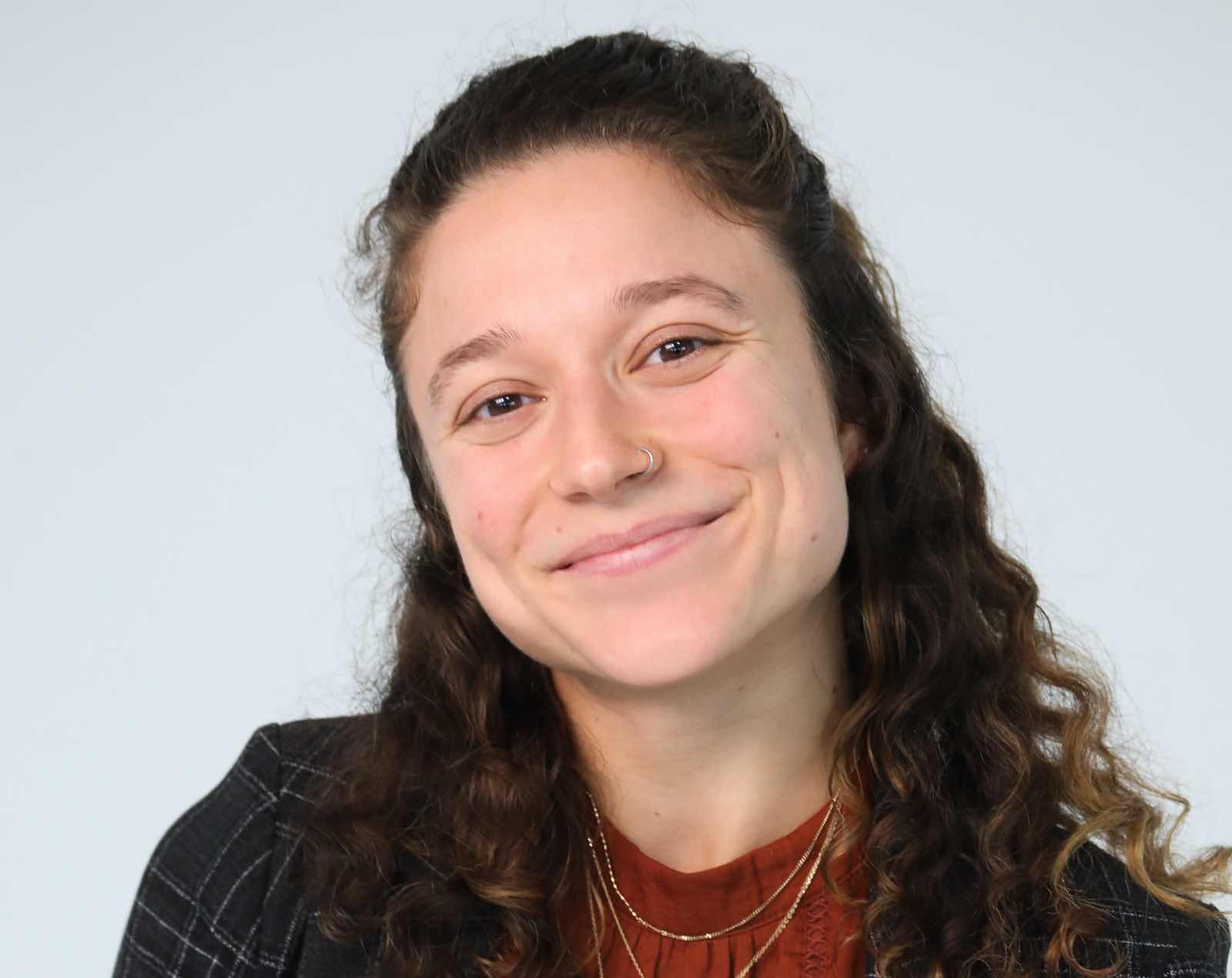One of our core values at UDisc is to include everyone. And while disc golf is often viewed as a friendly, welcoming activity, we can always aim higher. That's why we're celebrating Pride – because we strongly believe that, with LGBTQIA+ rights continuing to be marginalized in various corners of society, it is more important than ever to cultivate an inclusive environment.
With that in mind, we'll focus our efforts in 2023 on ways to build and foster community spaces that reflect our values and demonstrate that disc golf is for everyone.
How Can Disc Golf Grow to Be a More Welcoming Space for All?
In recent years disc golf has grown considerably in terms of participation and notoriety, and that means ever more people are getting to enjoy its various charms – from the satisfying sound of the chains to the celebrations of memorable moments.
Perhaps the best thing we can do to keep up this momentum is to build on what disc golf is already very good at: creating strong, supportive communities. The way to do that is consider how those communities can become even more welcoming. Minority groups in the sport, such as members of the LGBTQIA+ community, often lack visibility and may be overlooked in both casual and competitive play. However, this doesn't have to be the case in your disc golf circle.
Because the sport is still relatively young, every community has the opportunity to be cognizant of their actions and set a positive precedent by determining how welcoming it is to marginalized populations. Right now, though, the path towards being inclusive is a bit unclear in disc golf.
That's why it's worth taking a look at models that have produced great results in other sports, from those with longstanding histories such as soccer, our disc sport sibling Ultimate, and other niche activities just gaining popularity like pickleball.
Queer Leagues, Events, and Spaces
In cities across the United States and countries around the world, there are queer leagues for nearly every sport you can imagine. Soccer, football, cornhole, dodgeball, softball, ultimate Frisbee, and more all have spaces in which LGBTQIA+ individuals and their allies can meet to share a sport they all love in a setting where they can be authentically themselves. Some of these leagues are run through the sports' governing bodies, but most are similar to your local disc golf league in that they are community-led and operated.
Queer leagues are typically a series of events centered around an athletic activity in which the players are either queer themselves, family or friends of a queer person attending, or allies (straight and/or cisgender people who stand with their LGBTQIA+ neighbors). The purpose of these leagues and events is to create a clearly safe space for the queer community while providing an avenue for celebration and connection via sport.
"The number one benefit of a dedicated LGBTQIA+ space is the ability to relax and just be who you are," said Kim Copeland, one of the founders of Lavender Pickleball Club, a queer-friendly and queer-led pickleball club with members all around Colorado. "In this space, you can say things out loud without fear of any shock or blowback. Who we are is just normal. To me, dedicated spaces equal freedom."

Queer leagues can range from casual to ultra-competitive; can take place in team sports and individual ones; and can appeal to a wide variety of ages, genders, and sexualities. Most queer leagues will happily welcome allies to their spaces so long as they don't take away from the primary goal of safety and openness for the queer attendees.
"Ninety-nine percent of our leagues are open to everyone, including allies," said Tyler Foerster, founder of the United States Gay Sports Network, a directory of LGBTQIA+ sports leagues and events across the country. "The mission statement for gay leagues is to include everyone. If we didn't accept straight allies, we'd go against our primary goal."
What could this look like in disc golf? Queer leagues, especially in populated regions, could meet both on the course and socially, like many other disc golf leagues do. These can be competitive and fun while allowing folks to connect with other disc golfers like them.
It can be intimidating and nerve-wracking to start a queer league, but the potential benefits can be monumental.
"Many LGBTQIA+ individuals don't feel like they have an opportunity to play sports in grade school due to fear of discrimination, so these leagues are great to allow players of all skill levels and identifications to participate," said Foerster.
Foerster, himself a victim of discrimination in sport due to his sexuality, now uses the experience to further drive his mission.
"I never experienced discrimination in sports before I came out," said Foerster. "When I was coming out, I joined a baseball team early in the season and was doing well until two of my teammates saw that I was also playing in a gay league. I was immediately kicked out. When I asked the coach for a reason why, he used gay slurs and confirmed my suspicion that was the reason I was removed from the team.
"I hear stories like this all the time and want kids to know that these LGBTQIA+ leagues exist for this very reason," he continued. "I don't want anyone else to go through that."

If you host or form an LGBTQIA+ disc golf club, the United States Gay Sports Network is happy to list it on its directory to share with more players who might be interested. To submit your league, email [email protected] with the information of your league. Additionally, you can reach out to one of the larger gay sports organizations (OutLoud Sports, Stonewall Sports, and Pride Sports USA) for guidance in starting a gay league and for connections to communities, and you can always list your new league on UDisc.
Accountability at the Local Level
Holding players and spectators accountable for their actions and hateful comments helps ensure that no one feels uncomfortable or unwelcome. This accountability can originate from a governing body but is especially important at the local community level. Clubs, for example, can hold individuals accountable by establishing their own codes of conduct that emphasize inclusivity, speaking up when something out of line is said, condemnation of these statements, and consequences if the inappropriate comments continue (such as disqualification from events or leagues).
Without the weight of a governing body, upholding such rules can present challenges for volunteer organizers. But it can be done.
"The hardest part of having a code of conduct is that someone has to actually keep it," said Copeland of the Lavender Pickleball Club. "For us, we offer a warning system in which we communicate with the offender and discuss what happened. If there's another complaint, they are asked to leave. So far, most issues have been fixed after the initial warning and they have altered their behavior."
Enforcing the code of conduct is the best way to demonstrate to your community that you are looking out for those who are subject to harassment. It is crucial to the safety of your members to have the hard conversations.
Even if you are not a high-level organizer or a league or event participant, that doesn't mean you won't overhear something that might make someone feel unwelcome on the course during everyday rounds. In that case, what's the best way to handle it?
"Speak up when someone is being hateful or spreading harmful misinformation," said Amanda Branch, founder of Throw Proud, an organization dedicated to the education of and advocacy for queer disc golfers. "Showing vocally that you support the queer community is the best thing you can do. Show hateful people that it's not us [queer disc golfers] versus disc golf as a whole. There are so few queer disc golfers. Things will never change if the voices of supporters don't start getting heard over those who are against us."
Accountability at the Professional Level
Disc golf is predominantly a recreational sport, but a thriving professional circuit provides an elite level of competition for players to look up to. And in many professional sports, what a player, manager, or other public-facing figure says or does – regardless of if it occurs during competition, off the field, or even online – can have consequences.
In 2016, Andre Gray, a professional soccer player in the English Premier League, posted a homophobic message on social media. Despite the fact he never openly shared this sentiment on the field, the football association punished him with a four-game ban to hold him accountable and help encourage inclusion in the sport. This wasn't the first time the league enforced this code of conduct against players spreading hate speech, either on social media or in person, but it helped set the expectation for how players were to behave if they wanted to play in the league.
At this time, disc golf's largest professional tour sets guidelines for on-course conduct but does not have specific rules in place for off-field content for their public-facing figures.
The Disc Golf Pro Tour, which is primarily based in the United States but has one tournament in Europe, published community guidelines in April 2022. These standards concern hate speech and harassment on DGPT social media channels, on the DGPT YouTube channel, in comments sections on their streaming service, the Disc Golf Network, or in person at DGPT events. These are necessary guidelines that set the expectation for behavior among competitors in person, as well as spectators and event staff.
If harassment or hate speech, for example, occur on the course among DGPT competitors, these actions would also come under the scrutiny of the Professional Disc Golf Association's disciplinary policy and the governing body's own community guidelines, which state that competitors cannot express hate speech at PDGA events, on PDGA platforms (such as the organization's social media channels), or on PDGA properties.
While these codes of conduct are great steps toward minimizing intolerance, some advocates for LGBTQIA+ rights would like to see these organizations extend their reach to publicly-facing accounts of prominent players.
The PDGA's code of conduct, which the DGPT follows, states that the PDGA "reserves the right to determine and enforce further disciplinary action upon its players," but this is relatively vague guidance that does not explicitly mention if it extends to an individual's social media posts or other public displays of intolerance. That means there may be punishment or accountability for public-facing disc golfers if deemed severe enough for DGPT and/or PDGA intervention, but a direct and public rule against hate speech would help to set the precedent in a clear way and show members of the LGBTQIA+ that their safety is taken seriously, according to Branch.
"Currently, the code of conduct written by the PDGA only covers players speaking against other players during an event," Branch said. "Conversations exist elsewhere, though. There are things being said [in other venues] that, by the current code of conduct, should earn a disqualification. In other sports, it doesn't matter where or when you say it."
Balancing Inclusion and Competition
In sports, it's easy to get lost in the focus on competition. However, governing bodies that have established themselves as accepting of everyone, regardless of sexuality or gender identity, have placed inclusivity as the top priority in both casual and competitive play.
Take ultimate Frisbee, for example. In 2020, USA Ultimate announced a policy that established that players at all levels of competition can play in the division in which they are most comfortable, regardless of sex assigned at birth, identification within a gender binary, or any other form of gender or identity expression. This is the standard from casual play up to the top Ultimate competitions in the world.
"We have a very clear policy that favors inclusion that was informed by the data AND by folks’ lived experiences," Robyn Fennig, USA Ultimate’s Board President, wrote on Twitter. "We have already decided on inclusion, and it’s not up for debate."

While the PDGA emphasizes inclusivity in its public statements and competition standards, it is not as all-inclusive as the governing body of its fellow disc sport.
For transgender players and others outside of the gender binary, PDGA gender-based eligibility standards place limits on when and where they can compete. Transgender women can still play the majority of tournaments, but they are not allowed in top-tier tournaments in their preferred division, barring them from any tournament higher than an A-Tier, such as Majors, Elite and Silver events of the DGPT. This places a ceiling on the potential for these players by directly lowering their earning potential and their ability to make a career as a pro disc golfer. This also indirectly has a negative impact on the growth of the sport as a whole; yes, there are a couple of openly gay or lesbian pro players, but other LGBTQIA+ folks who look to the pro tour for visibility do not see themselves fully represented.
The PDGA essentially has two competition standards for transgender women: adherence to strict testosterone measurements for A-tiers and lower – an allowance to compete – and an effective ban at elite levels. That stands in contrast not just to Ultimate's inclusive policy but also those of organizations like the Ladies Professional Golf Association, National Women's Soccer League, and Premier Hockey Federation, which allow for transgender women to compete by adhering to standards that are closer to the PDGA's A-tier policy. And yet, the restriction at elite levels does put disc golf in line with swimming, track and field, and other sports where transgender women have recently been barred.
So, what is the difference between sports like ultimate and disc golf that has resulted in such a wildly different approach to this balance? USA Ultimate's core values have a lot to do with it.
"We have an opportunity to focus on inclusion for all athletes, including those most marginalized by society. Let’s choose inclusion," stated the policy. More recently, the organization released a statement specifically in support of the transgender community.
So, What Can I Do to Make Disc Golf More Inclusive?
How does all of this impact players and organizers at the local level? There are still ways that event directors, clubs, and tournament staff can choose to value being welcoming of all while still upholding competition.
You can place inclusion as an area of high priority by simply being intentional about catering to all types of disc golfers and being intolerant of hate speech or harassment. Setting the expectation with your players in advance that your tournament will be a welcoming, inclusive environment is paramount. Additionally, running an unsanctioned event can let you create your own inclusivity policy rather than needing to adhere to specific requirements. Other than that, you can just play a round like you would with anyone else you were carded up with.
"One of the best things you can do to drive inclusion is to simply play a round of disc golf with a queer person," said Branch. "I wish everyone could play a round with a gay or trans person. So much of society as a whole, especially those who are hateful, are just people who have absolutely no exposure to us [queer people]. If more people just played a round with us, they'd realize we're not so different."
